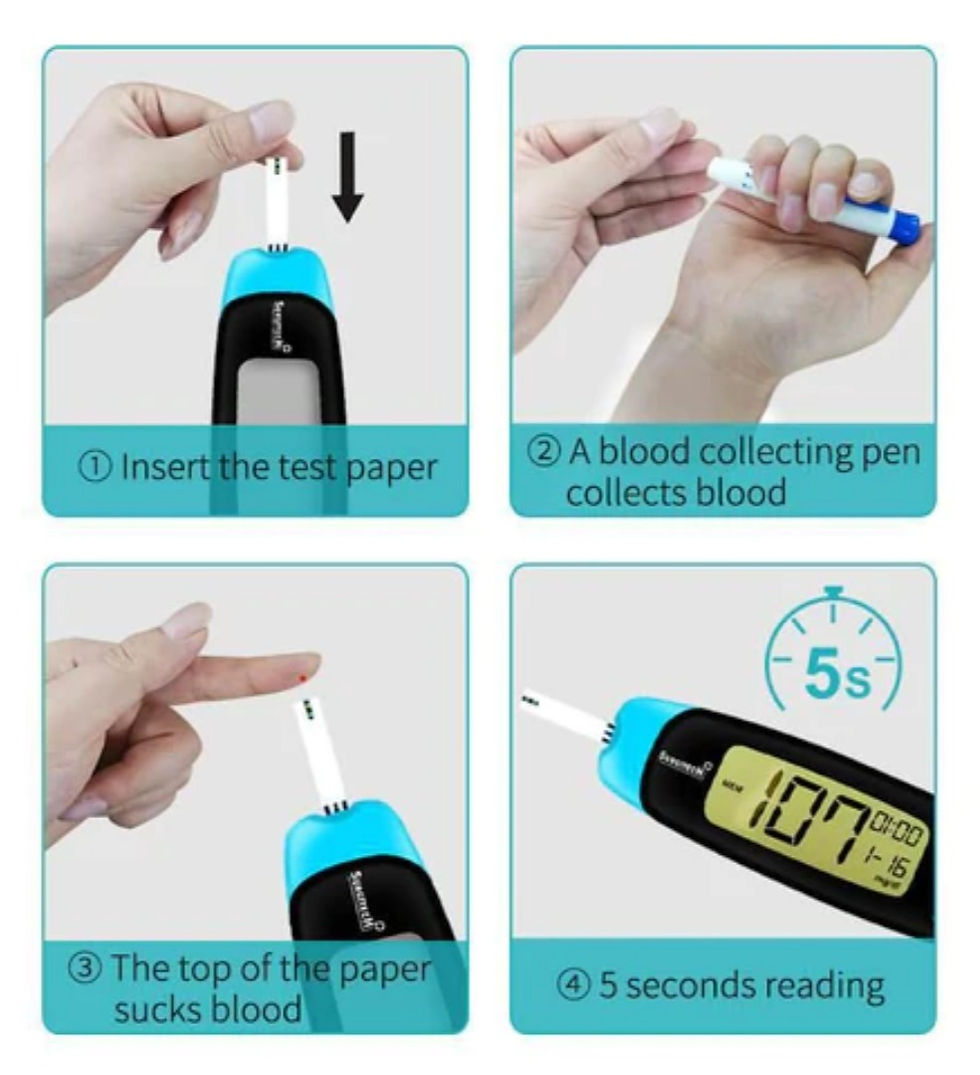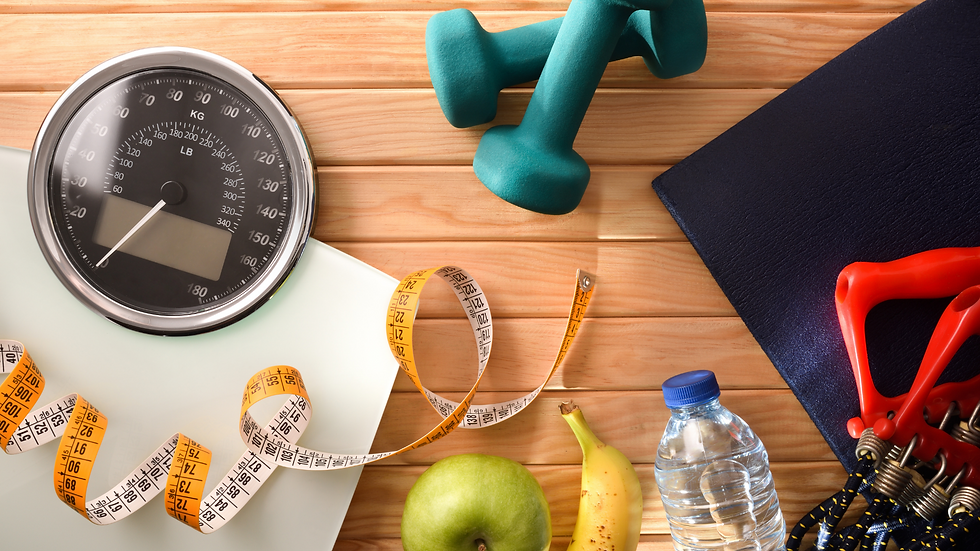5 Signs that your Blood Sugar is too High
- Medasia Philippines
- Nov 8, 2022
- 4 min read
Updated: Dec 5, 2022
Some people have the habit of performing regular physical examinations to determine where there is a problem with their own body and what should be paid attention to in daily life. However, some people do not practice regular physical examinations. When minor symptoms, such as elevated blood glucose, appear, they can tolerate them as long as there is no problem.
High blood glucose is difficult to detect if there is no special daily monitoring. High blood sugar levels will harm your health over time, and the most severe cases may lead to diabetes.

Of course, high blood glucose is not "untraceable", when blood glucose rises, the body will appear five more obvious, easily recognized signs.
Symptom 1: Fatigue
There are numerous causes of a lack of body strength. However, if you are tired all day and your lower body, waist, knee, and two calves are especially weak, you should pay attention. It could be caused by high blood glucose levels.
Symptom 2: Always feel very hungry
The prominent characteristic of people with high blood glucose levels is that they are easily hungry. This is primarily due to the fact that sugar in the body is excreted with urine, blood glucose cannot be sent into body cells, and a large amount of glucose is lost, resulting in a lack of cell energy, and the stimulating signal of a lack of sugar in the cells is constantly transmitted to the brain, causing the brain to send out the "hunger" signal.
Symptom 3: Frequent urination, urine
People who have high blood glucose levels will urinate more frequently and in larger amounts. Urination can occur up to 20 times in 24 hours, with urine volumes ranging from 2-3 liters to 10 liters. Furthermore, there is a lot of urine foam, and the urine stains are white and sticky. Polyuria occurs when blood glucose levels exceed the renal glucose threshold (8.910mmol/L), and the amount of sugar excreted into the urine increases, increasing the number of urine and urine volume.
Symptom 4: Very thirsty
Excessive urination causes a loss of water in the body. When the total amount of water in the body is reduced by 1 to 2%, the thirst center of the brain is stimulated, resulting in the physiological phenomenon of extreme thirst for water.
Symptom 5: Eat a lot but become thin
People with high blood glucose have high blood sugar, glucose cannot be well absorbed and used by the body, but a large amount of glucose is lost through urine, so the body can only decompose fat and protein to provide energy, which may result in body wasting, fatigue, and a decrease in body immunity.
Hyperglycemia does not equal diabetes
Hyperglycemia is one of the essential features of various types of diabetes. However, hyperglycemia does not necessarily mean diabetes. It can only indicate high blood glucose in the human body, and generally, there will be no adverse reactions to hyperglycemia.
In addition to all types of diabetes, common causes of high blood glucose are: (1) eating too much, especially sweets or sugary drinks; (2) excessive obesity; (3) excessive emotional or mental pressure; (4) Drinking alcohol can lead to hypoglycemia or hyperglycemia; (5) taking some drugs, such as prednisone, dexamethasone, and other drugs that cause high blood sugar, and such as taking some cough syrup; (6) Some chronic liver diseases, such as cirrhosis, chronic hepatitis, fatty liver, etc., central nervous system diseases, such as skull fracture, encephalopathy, meningitis, etc., cause increased intracranial pressure; (7) Some functional causes can also cause hyperglycemia, such as predatory hyperglycemia, increased glycogen decomposition, metabolic diseases, acute myocardial infarction, stroke, severe trauma, manic, massive bleeding, and other stress states.
As a result, hyperglycemia is not the same as diabetes, but it is a precursor to diabetes, so if hyperglycemia symptoms appear, go to the hospital as soon as possible for examination, diagnosis, and treatment.
High blood glucose can be so recuperated
When high blood glucose occurs, we should not only go to the hospital for an examination as soon as possible and follow the doctor's instructions to "remedy the disease," but we should also pay more attention to it in everyday life. I'll go over some methods for "stabilizing" your blood sugar.
1. Adhere to the exercise conditioning
People with chronically high blood glucose should maintain a certain level of activity every day, even if it is as simple as walking for 20 minutes a day, which can significantly improve their condition.

2. Adhere to the diet conditioning
Avoid high-sugar foods, reduce fat, avoid fatty foods, avoid high-cholesterol foods, and avoid carbonated beverages. Eat a lot of high-fiber foods like whole grains and vegetables, eat small, frequent meals, get enough protein, and drink plenty of water.

3. Try to control your weight
The study found that obese people who lost just 5 percent of their body weight were more likely to reduce their risk of diabetes by 70 percent.

4. Self-relaxation and emotional regulation
Do something you enjoy to relieve psychological stress, such as deep breathing, walking, listening to music, reading, and so on; stress relief is beneficial to blood glucose control.

5. Regular monitoring and physical examination
Diet adjustment, exercise adjustment, and psychological adjustment require a comprehensive examination and clear cause of the basis; if the above-mentioned blood glucose rise "signs," go to the hospital immediately for examination, symptomatic treatment, and daily conditioning to make the body more and more healthy.









Comments